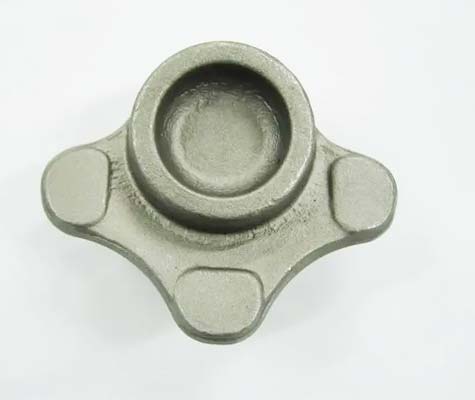- Contact Innally, Let you purchase forgings in China more favorable prices, products more assured!
- Hotline:+(86)15038323776 Email:innally@innally.com
Types and uses of agricultural machinery forgings
- Category: Aluminium alloy forging, Mechanical forgings for metalworking
- |
- Date: 12/10/2023
agricultural machinery forgings are an indispensable part of agricultural machinery and equipment, and their types and uses are diverse, which has an important impact on the performance and service life of agricultural machinery and equipment. Therefore, it is necessary to understand the types and uses of agricultural machinery forgings
Product Details
Agricultural machinery forgings refer to the forged parts for agricultural machinery and equipment, which are usually made of steel, aluminum alloy, copper alloy and other materials and processed by forging process. In agricultural machinery and equipment, agricultural machinery forgings play an important role, and their types and uses are also diverse.
First, common types of agricultural machinery forgings
Gear class: including cylindrical gear, bevel gear, worm gear, etc., used to transfer power, change the direction of movement and speed.
Shaft: including spindle, driven shaft, rotating shaft, etc., used to support and transmit power, so that the various parts of agricultural machinery can be moved.

Connection class: including bolts, nuts, pins, etc., used to connect each part to make it a whole.
Box type: including variable speed box, engine body, pump body, etc., used to install and support gears, shafts, bearings and other moving parts.
Other categories: including flanges, supports, supports, etc., used to connect and support various components.
Second, the use of agricultural machinery forgings
Power transmission: Agricultural machinery forgings can transmit power, so that the various parts of agricultural machinery can be moved. For example, gears can transfer power from the engine to the gearbox, and then through the shaft and bearings to various parts of the agricultural machinery.
Support and positioning: Agricultural machinery forgings can support and position each component to ensure its correct working attitude and movement trajectory. For example, the shaft class can support the various components on the shaft and ensure the accuracy of its movement.
Connecting and fixing: Agricultural machinery forgings can connect and fix individual parts to make them a whole. For example, a bolt can join two flanges together to form an integral moving part.
Bear the load: agricultural machinery forgings can bear the load, such as gear and shaft need to bear a certain torque and bending moment when transmitting power.
Sealing and leakproof: some agricultural machinery forgings also have sealing and leakproof functions, such as the piston ring can seal the cylinder to prevent gas leakage; Nuts can prevent pipes from leaking, etc.
Auxiliary operation: some agricultural machinery forgings can be auxiliary operation, such as the joystick can control the direction and speed of the movement of agricultural machinery; The foot pedal can control the accelerator and so on.
In short, agricultural machinery forgings are an indispensable part of agricultural machinery and equipment, and their types and uses are diverse, which has an important impact on the performance and service life of agricultural machinery and equipment. Therefore, it is necessary to understand the types and uses of agricultural machinery forgings
nannan
INNALLY mainly provides you with various types of cast and forged parts products. Welcome your inquiries! innally@innally.com
Related Products
Search
Forging center
- Steel forgings
- Aluminium alloy forging
- Titanium alloy forging
- Stainless steel forging
- Copper forging
- Automotive forgings
- Locomotive forging
- Bicycle forgings
- Motorcycle forging
- Rigging and fasteners
- Bearing forging
- Electric power fittings
- Marine forging
- Mechanical forgings for metalworking
- Mining machinery forgings
- Marine engineering forgings
- Construction machinery forgings
Popular product

© 2025. All Rights Reserved.






